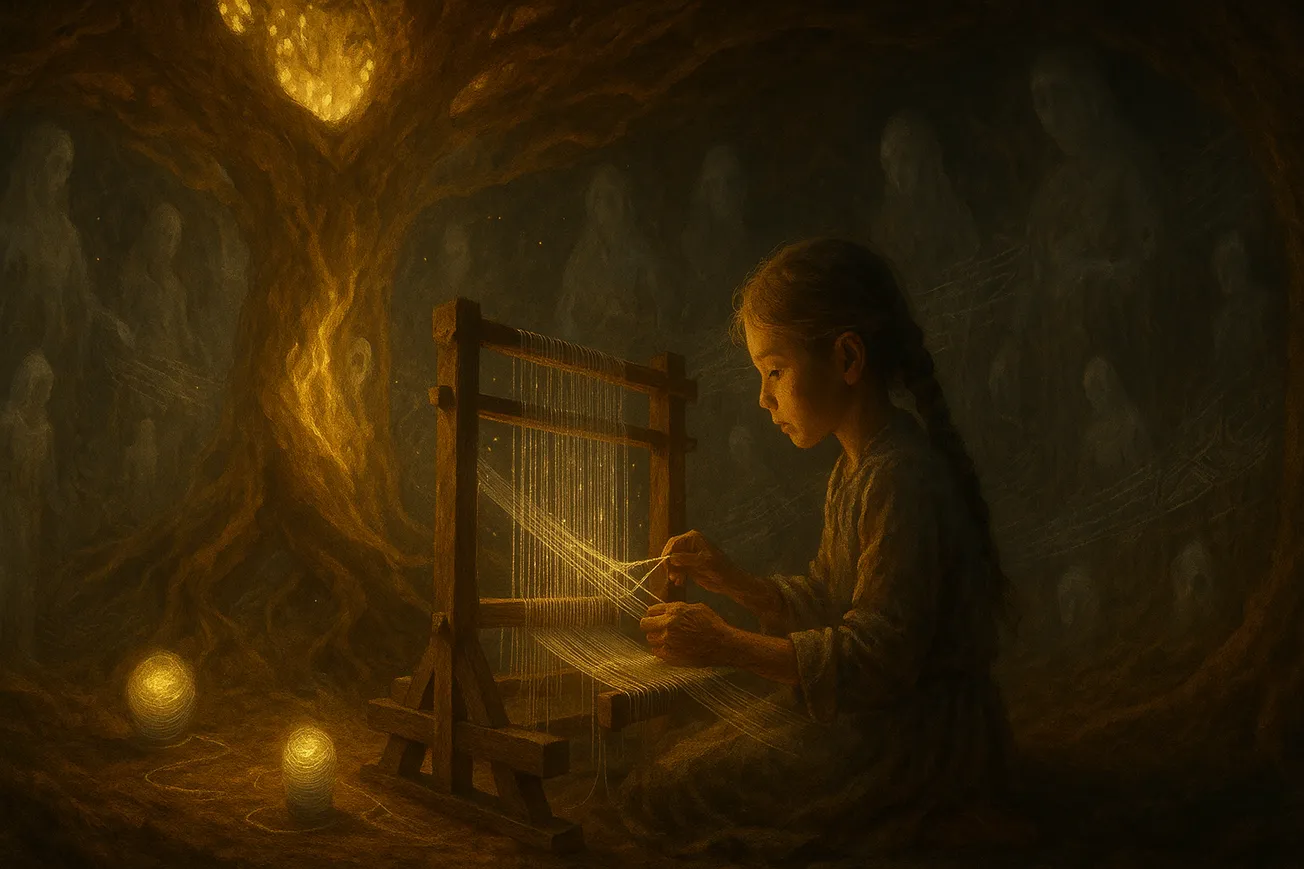🌈 The Fractal Story Engine | Body & Death | (21) BD-002-D1
In the village of Thera Noin, where the sky was always slightly blurred, as if memory itself had smudged the sun, children were taught not to name their dreams. Names had weight, and weight made things stay. To forget was considered a grace.
But the child called Imri could not forget. Not the brittle ache in her knees. Not the salt-worn voice that slipped from her mouth when she tried to hum lullabies. Not the way the others looked at her, sideways and brief, like a question they’d chosen to leave unanswered.
She had gone to sleep in her cotton-skin. Woken in creased parchment. Her hands were strangers with stories she didn’t recognize, and the face in the water’s edge would not settle into clarity. The other, the one who had been here before, who had worn this body, was simply gone.
The elders said nothing. Only looked away. The midwives placed new sandals by her bed and called her by no name. That, too, was tradition. To speak a name is to tie it down. And Thera Noin had no appetite for knots.
So Imri wandered.
For a time, she mimicked the movements that memory insisted were hers. She stirred soup with hands that trembled. She swept stone paths until the moss curled back in complaint. But the stillness never returned. The echo of the switch pulsed in her bones like a second heartbeat, and she could not live as if the thread had not frayed.
In the north bend of the village, beneath the amberleaf arbor, lived the one they whispered about but never named. She was older than records and younger than regret. She was called the Archivist only by those who had lost something they couldn’t forget.
Her home was made of hushed colors and thread. Spindles lined the walls, each humming faintly with the residue of a question never asked. In her presence, silence did not feel empty. It felt sculpted.
Imri came without words, but her shadow arrived before her, patterned strangely, interrupted, refracted, thick with borrowed steps.
The Archivist nodded.
With a crooked needle, she stitched the child’s shadow into the loom of the north wall, where it met others. Some frayed. Some looped back. Some pulsed faintly, as if their weavers still dreamed.
“This one lingers,” the Archivist murmured, not to Imri but to the thread. “The elder has not returned.”
Imri sat among the weavings and watched as her own shape grew more intricate each day. The loom drank her footsteps, her pauses, the tilt of her head when the wind passed oddly. The shadow-thread twisted, not in sorrow or joy, but in questioning.
She learned to listen with her breath.
She learned to walk without deciding.
She learned that remembrance was not the opposite of forgetting, but its twin.
As the seasons turned inward and the veil of names thinned, more came. Quiet exchanges that never reversed. A baker who forgot the smell of yeast. A scribe who lost the skill of his fingers. A child who could no longer cry.
Each left a thread. The Archivist wove.
One dusk, Imri reached for the spindle herself. Her hands, those papered relics, had found a rhythm. The needle followed her fingertips without asking. A new pattern emerged: a loop folded into itself, twice. It did not belong to her. But it recognized her.
“What happens,” she asked quietly, “when the threads begin to remember?”
The Archivist did not answer. Instead, she pulled a box from the hearth. Inside were threads that shimmered with no source. They smelled of copper and first rain. They curled like question marks.
“These are the ones who chose not to return,” she said. “They live now in the spaces between.”
Imri held one. It warmed. Her name rose in her throat, unspoken but known.
And for the first time since the switch, she felt the hush of choice.
To vanish into another.
Or to speak the pattern aloud.

